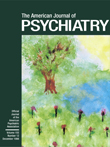Testimony Psychotherapy in Bosnian Refugees: A Pilot Study
Abstract
Objective:The authors sought to describe the use of the testimony method of psychotherapy in a group of traumatized adult refugees from genocide in Bosnia-Herzegovina. Method:The subjects were 20 Bosnian refugees in Chicago who gave written informed consent to participate in a case series study of testimony psychotherapy. All subjects received testimony psychotherapy, averaging six sessions, approximately 90 minutes, weekly or biweekly. Subjects received standardized instruments for posttraumatic stress disorder (PTSD), depression, traumatic events, global functioning, and prior psychiatric history. The instruments were administered before treatment, at the conclusion of the treatment, and at the 2- and 6-month follow-ups.Results:The posttreatment assessments demonstrated significant decreases in the rate of PTSD diagnosis, PTSD symptom severity, and the severity of reexperiencing, avoidance, and hyperarousal symptom clusters. Depressive symptoms demonstrated a significant decrease, and there was a significant increase in scores on the Global Assessment of Functioning Scale. Two-month and 6-month follow-up assessments demonstrated further significant decreases in all symptoms and an increase in scores on the Global Assessment of Functioning Scale. Conclusions:This pilot study provides preliminary evidence that testimony psychotherapy may lead to improvements in PTSD and depressive symptoms, as well as to improvement of functioning, in survivors of state-sponsored violence. Am J Psychiatry 1998; 155: 1720-1726



